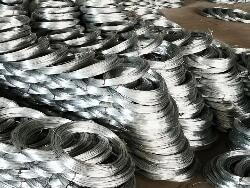Can I Use Drywall Screws Outside?
When it comes to construction and DIY projects, selecting the right fasteners is crucial for ensuring the longevity and durability of your work. A common question that arises is whether drywall screws can be used for outdoor applications. In this article, we will explore the properties of drywall screws, their intended uses, and the implications of using them in an outdoor environment.
What are Drywall Screws?
Drywall screws are specifically designed for fastening drywall panels to wooden or metal studs. They typically feature a coarse thread that helps grip the fragile gypsum material securely. Most drywall screws also have a bugle head, which allows them to sit flush with the surface of the drywall. These screws are made from steel and are often coated with a black phosphate or other finishes to prevent corrosion while being used indoors.
Intended Use and Limitations
Although drywall screws are adept at securing drywall, using them in applications beyond their intended purpose can lead to problems. One of the most significant limitations of drywall screws is their susceptibility to corrosion. The coatings applied to them are generally not designed for prolonged exposure to moisture and outdoor elements. As a result, if drywall screws are used outside, they can rust quickly, compromising the integrity of the fastener and the structure it secures.
Risks of Using Drywall Screws Outdoors
1. Corrosion The primary risk of using drywall screws outdoors is corrosion. When exposed to rain, humidity, or any form of moisture, standard drywall screws can begin to rust. This corrosion can weaken the screws, leading to failures in the fastening system and potentially causing structural issues over time.
2. Weakened Holding Power As drywall screws corrode, their holding power diminishes. This is especially problematic in outdoor applications where the screws might be subject to varying loads due to wind, temperature fluctuations, or the settling of materials.
can i use drywall screws outside

3. Splitting and Cracking When used in wood, drywall screws can split or crack the material over time, particularly if moisture causes the wood to expand and contract. This can lead to compromised joints and structural instability.
Alternatives for Outdoor Use
If you are undertaking an outdoor project, it is important to select fasteners that are designed for exterior conditions. Here are a few alternatives that are better suited for outdoor use
1. Deck Screws Specifically designed for outdoor applications, deck screws are often coated with materials that resist corrosion, such as stainless steel or specialty coatings. They have a sharp point for easy driving and a design that minimizes the risk of splitting wood.
2. Lag Screws Lag screws provide a strong connection for heavy materials or structural elements. Like deck screws, they come in corrosion-resistant coatings, making them suitable for outdoor projects.
3. Construction Screws These screws are versatile and are built to withstand outdoor conditions. Many are treated for corrosion resistance and offer excellent holding power.
4. Self-Drilling Screws Especially useful for metal-to-metal connections, these screws can also be coated for rust prevention, making them suitable for outdoor use.
Conclusion
In conclusion, while it may be tempting to use drywall screws for convenience, they are not the right choice for outdoor projects. Their susceptibility to corrosion and reduced holding power when exposed to moisture can lead to significant issues down the line. Instead, opting for fasteners designed specifically for outdoor use, such as deck screws or lag screws, will ensure your projects are secure, durable, and able to withstand the elements. Always consider the materials and environment of your construction project when selecting fasteners to ensure the best long-term results.

















